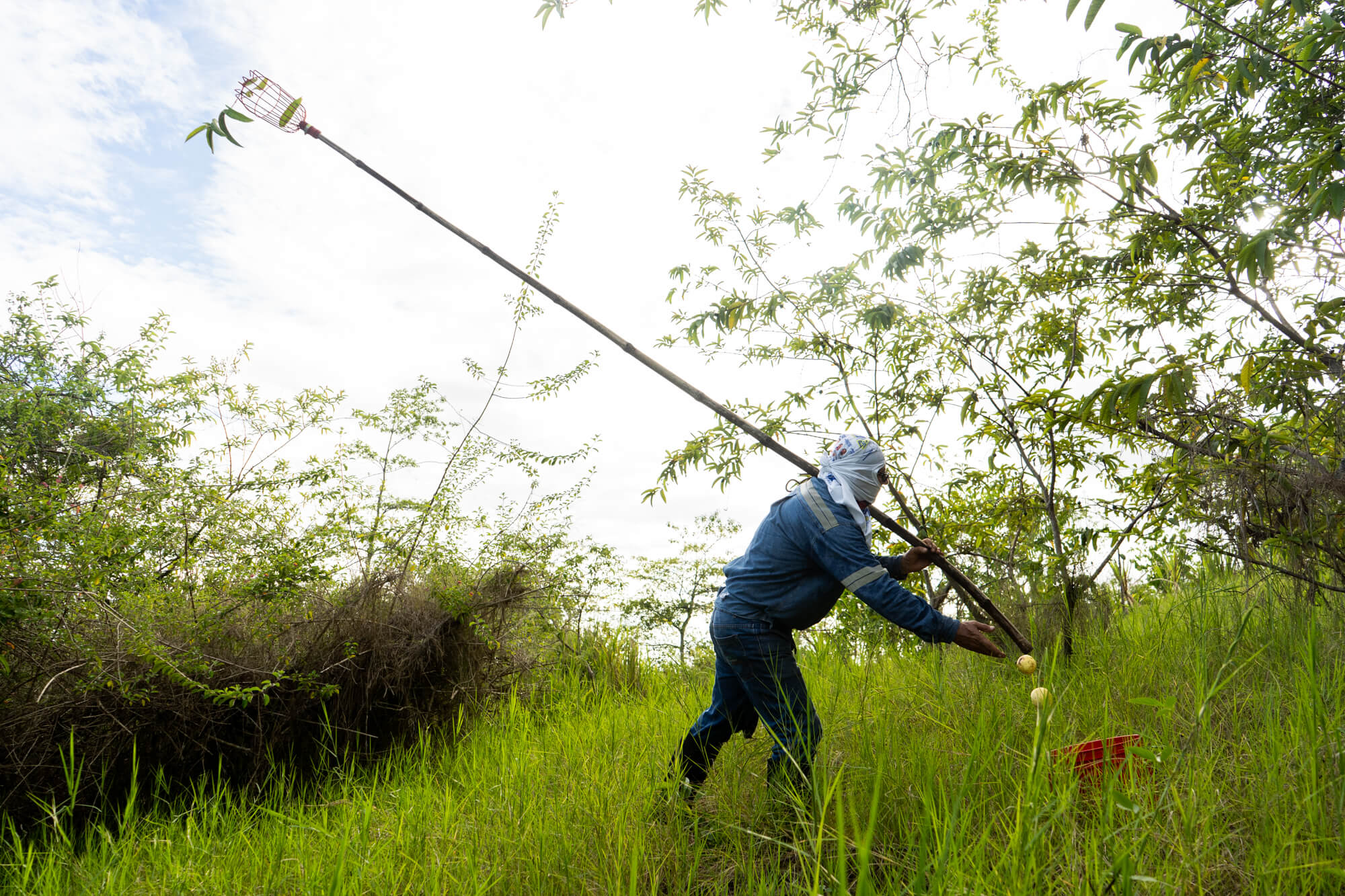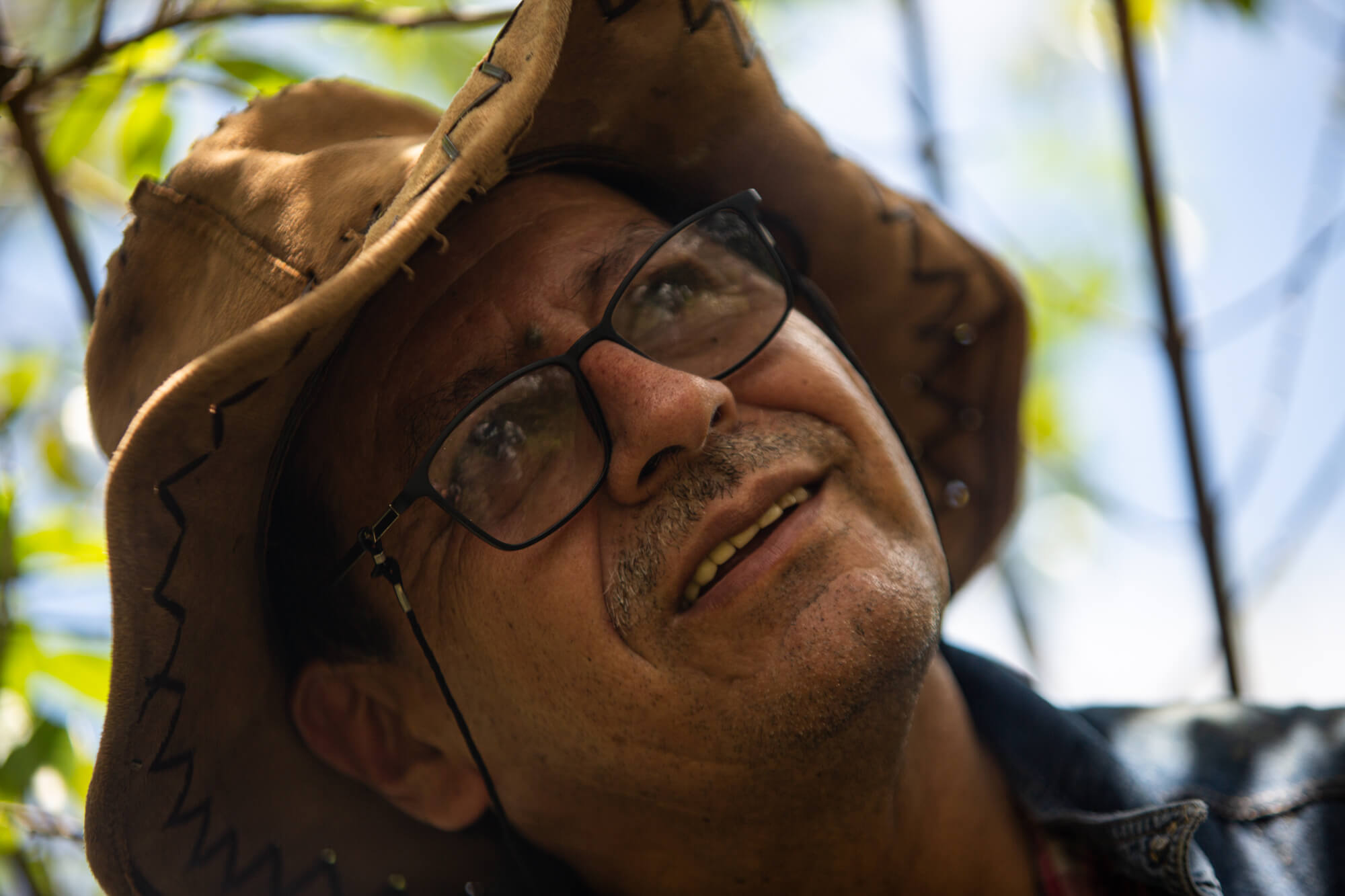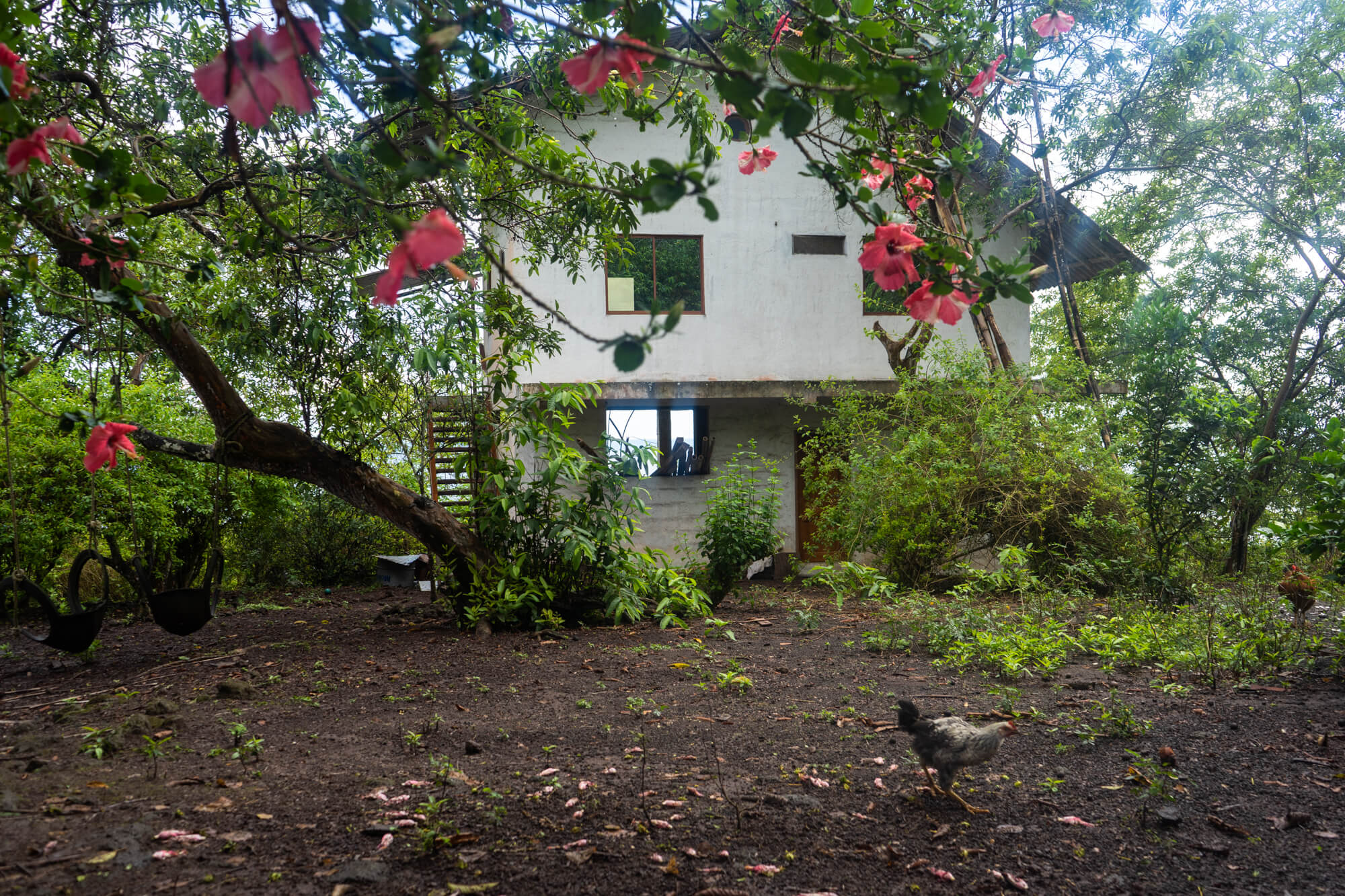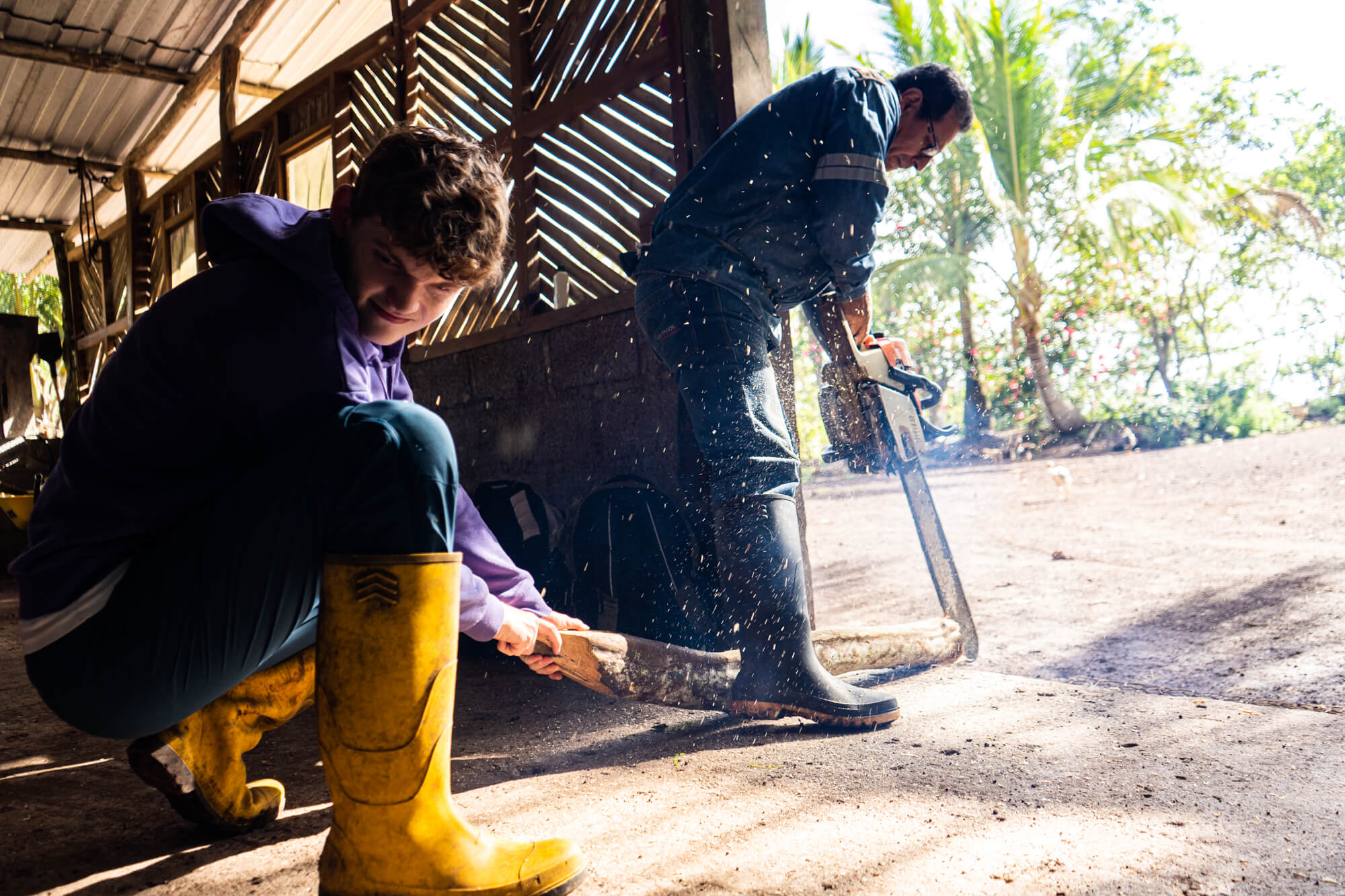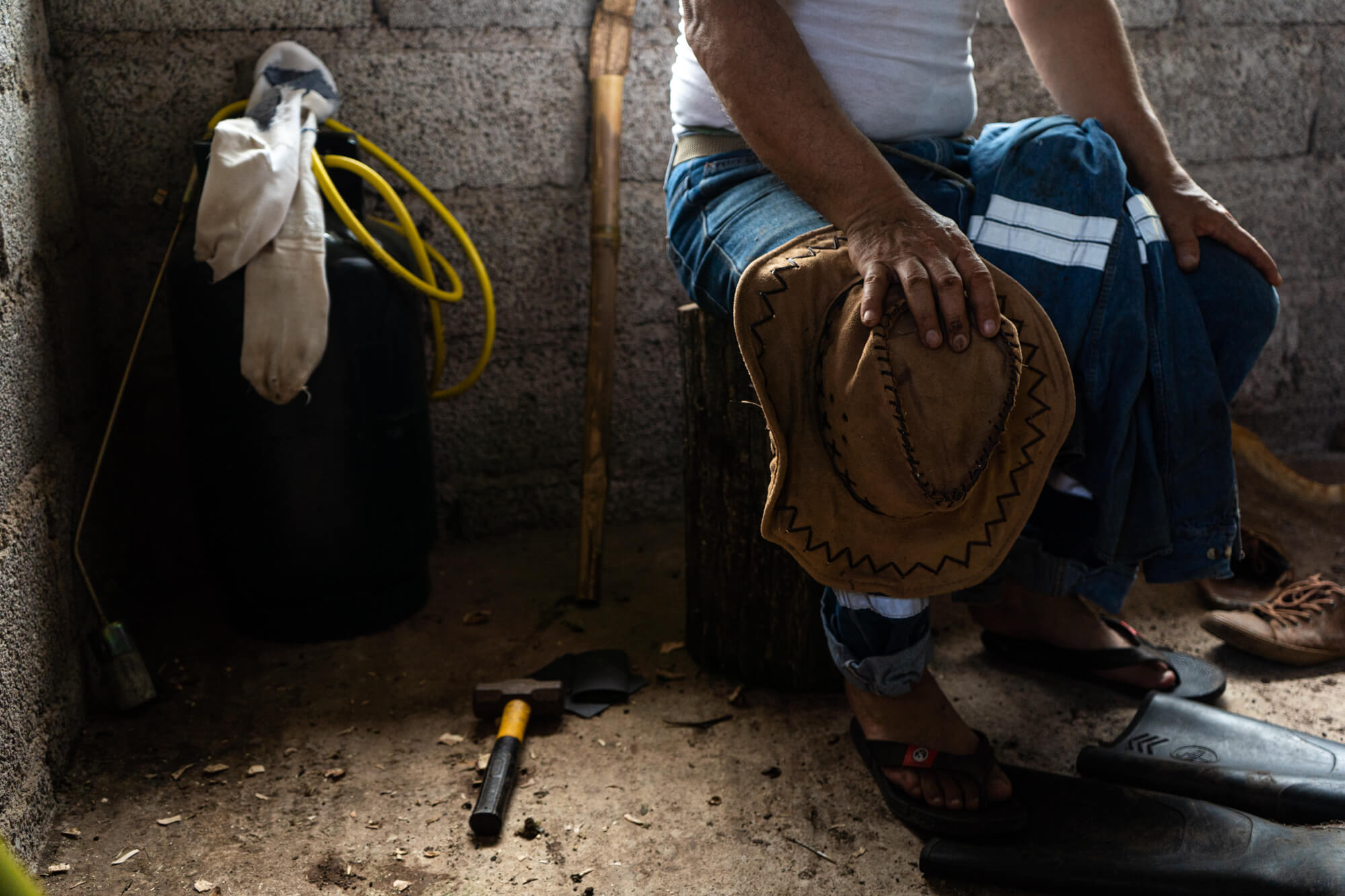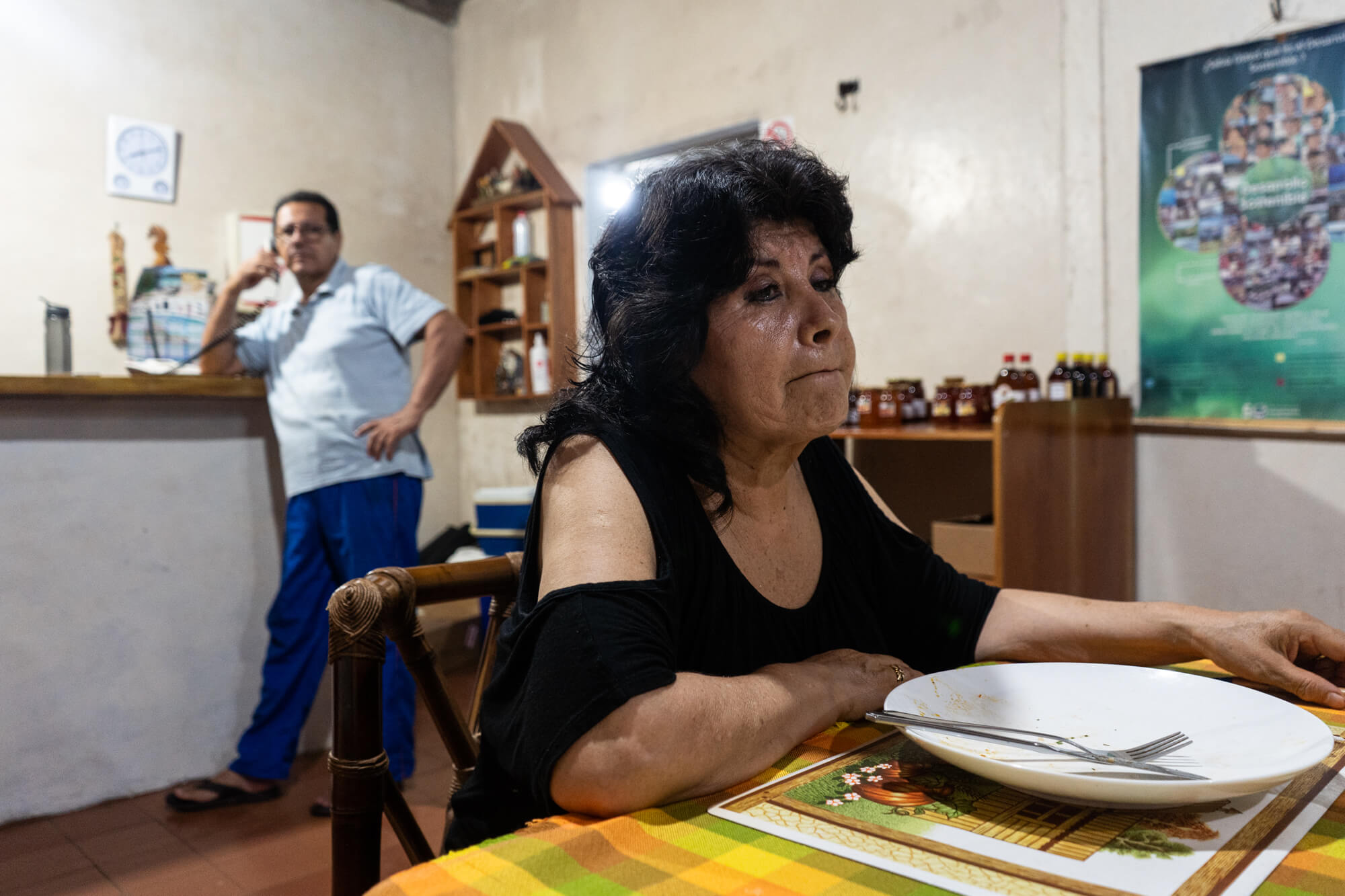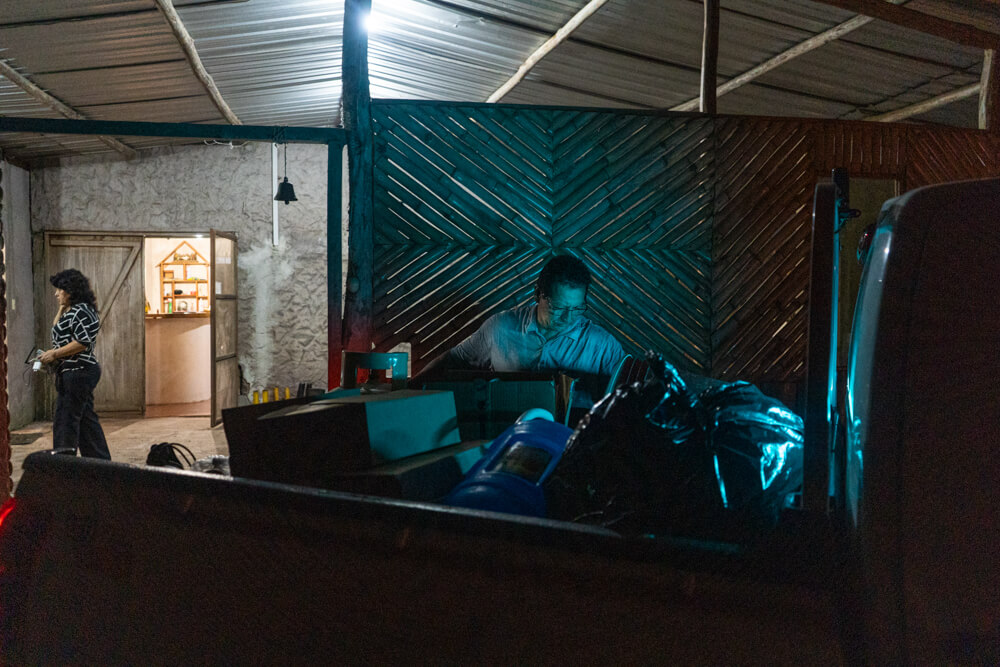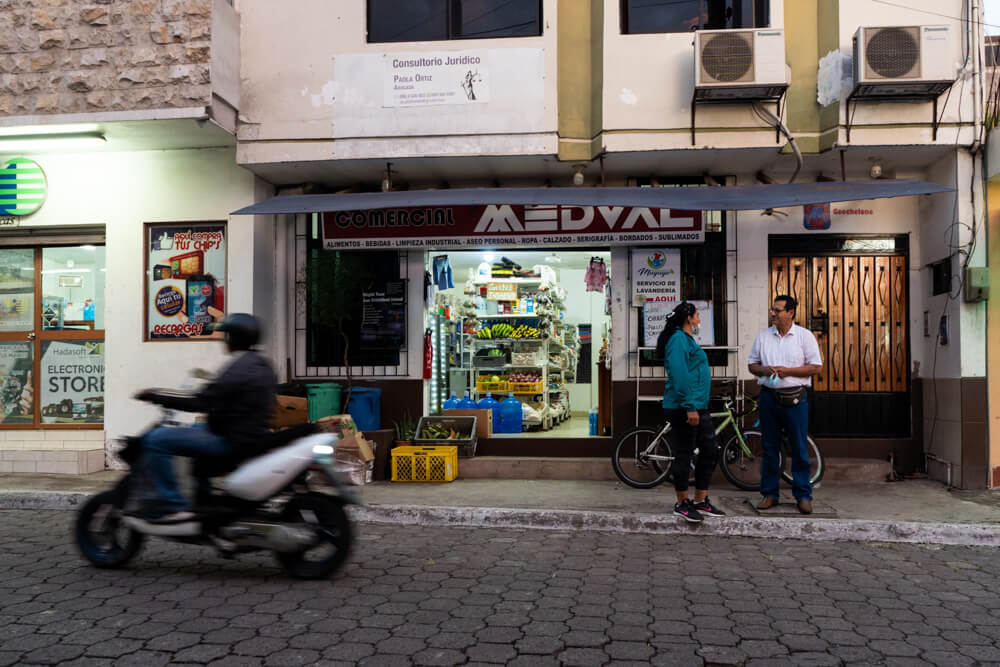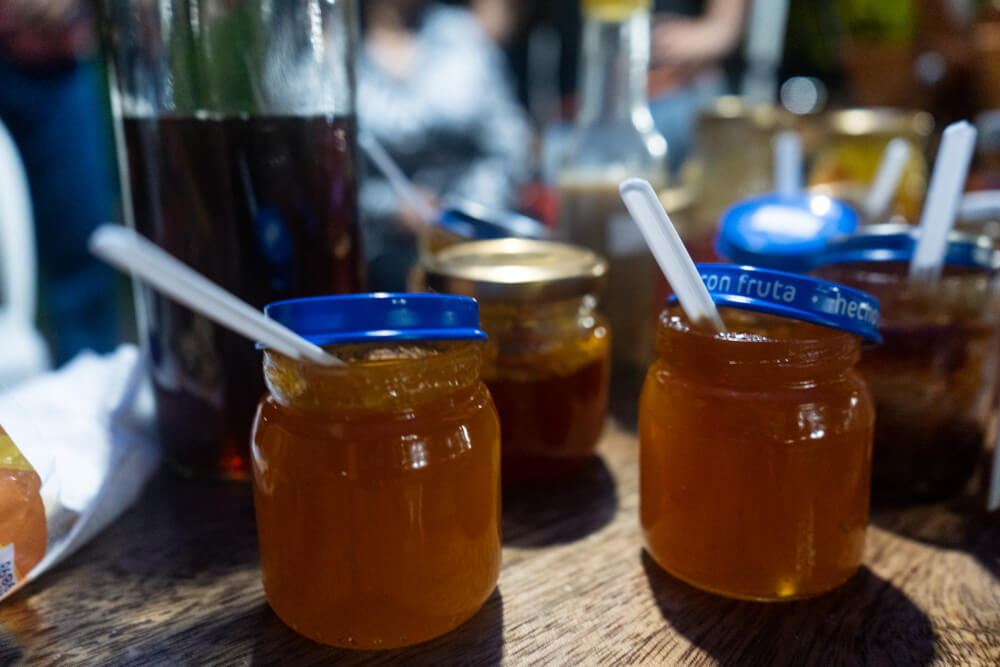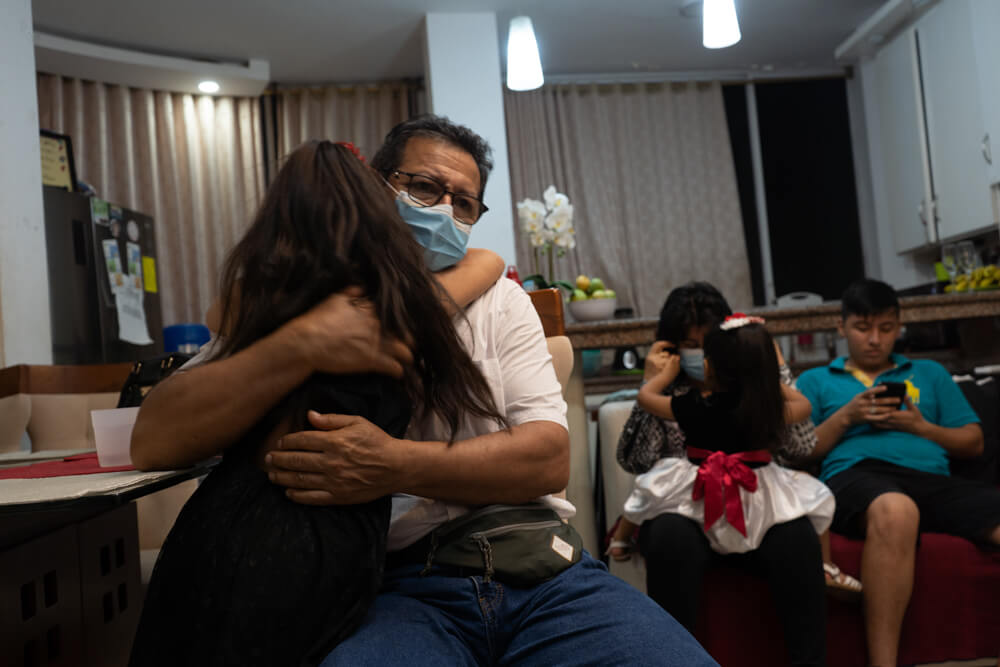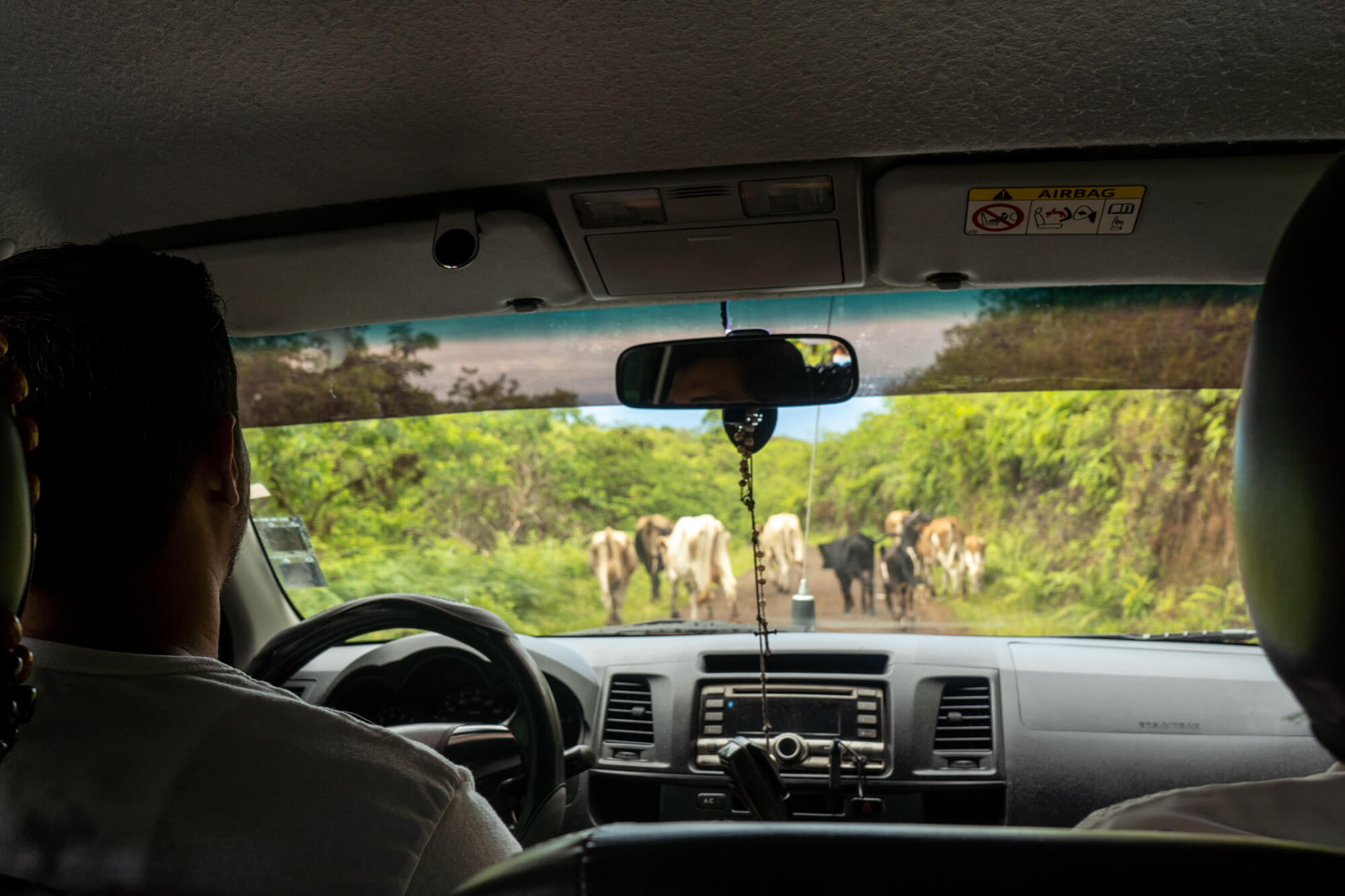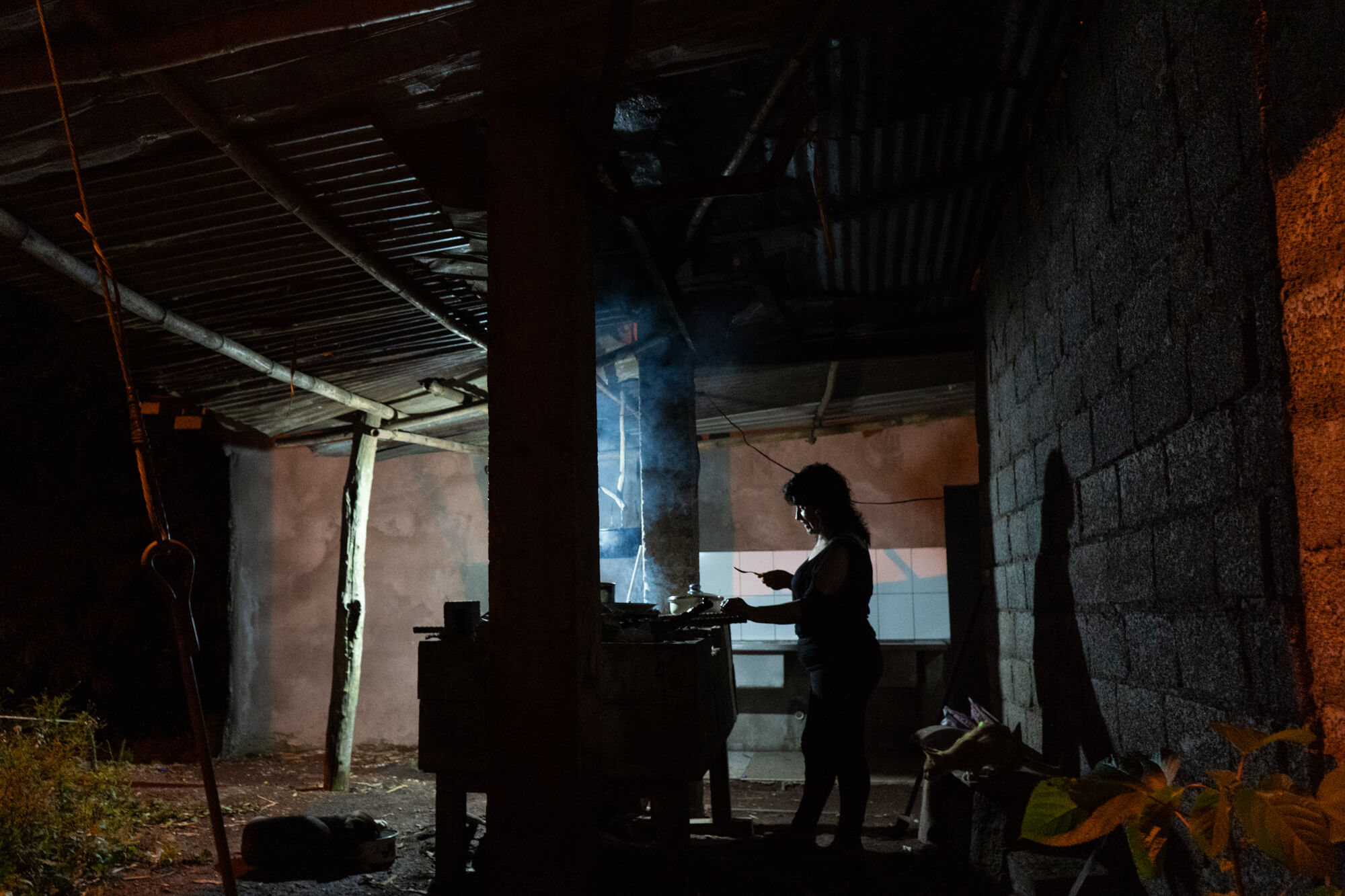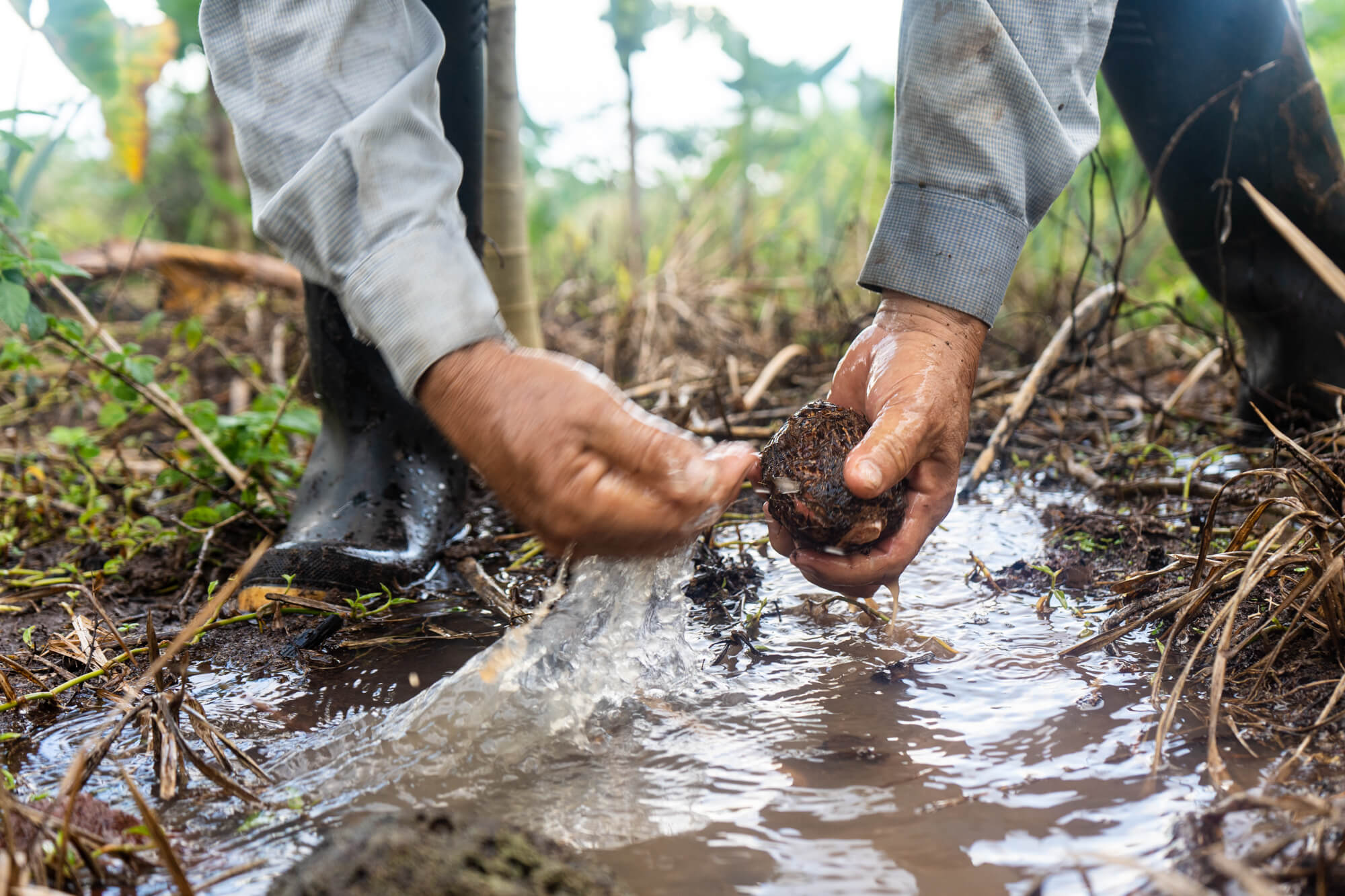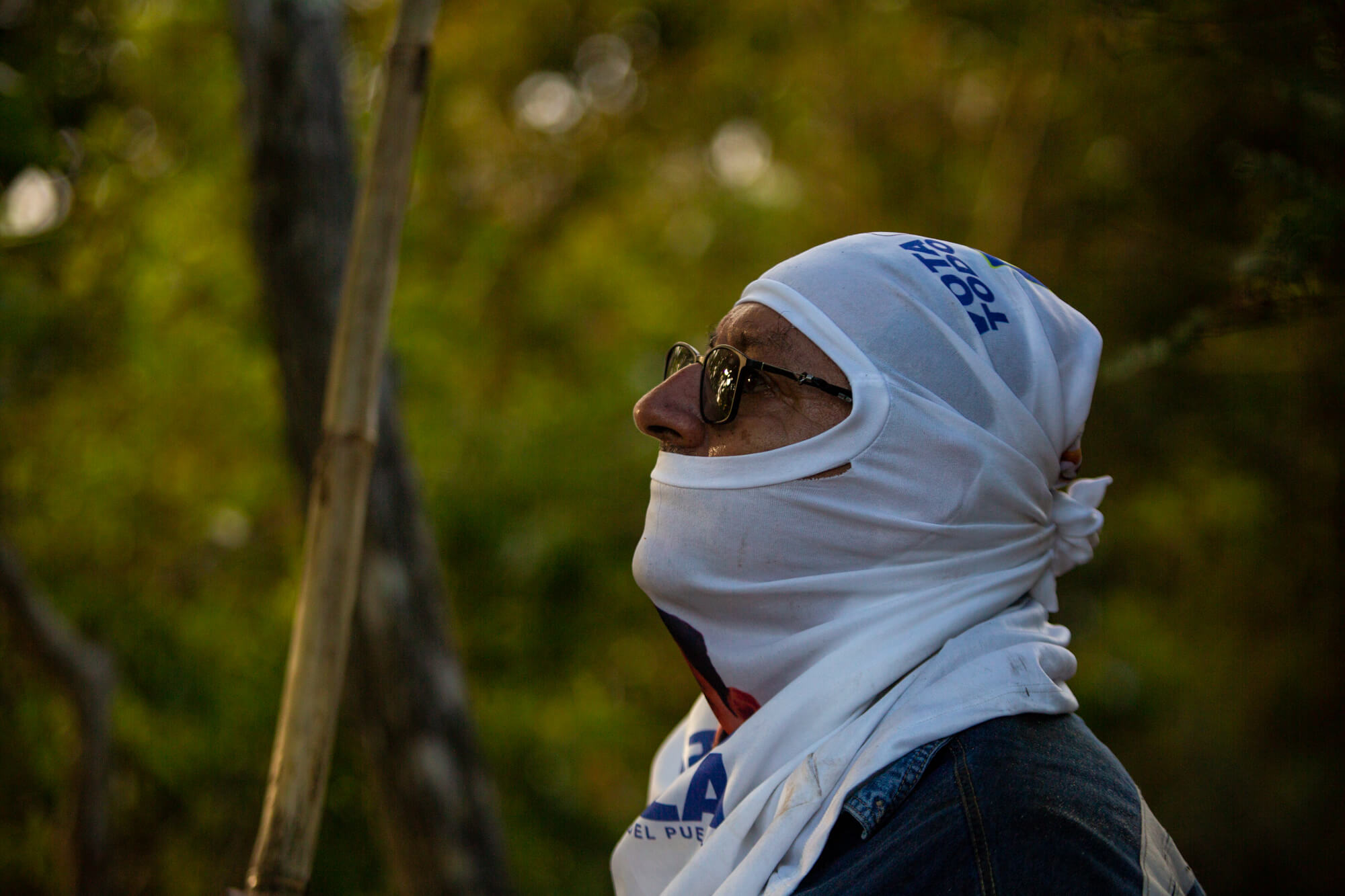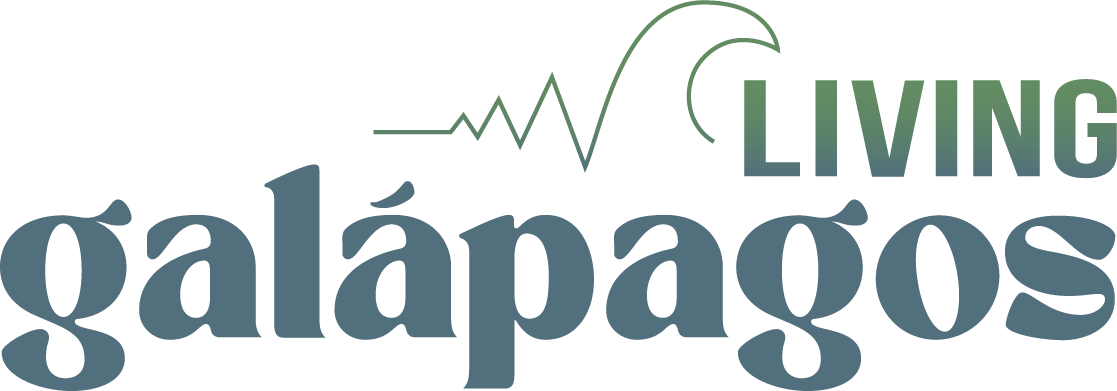A Part of Us
By Caroline Bittenbender
The Hacienda Guadalupe farm is one of few freshwater farms in all of the Galápagos Islands, with a 50-foot waterfall on the property. A remarkable place, the most special aspect of the farm is the family who works the land.
The Aguas family places a particular emphasis on the circular economy. All produce grown on Hacienda Guadalupe is sold, eaten or otherwise used, and all materials used for packaging products come back to the farm.
The family displays a similar relationship with the land that they nurture. Every plant, animal, drop of water, and person has an intricate role to fill. Living entirely off of the land in the San Cristóbal highlands is what they know. It may not be much, but it is enough.
“It is our way of being, our culture, our way of life,” said farmer Milton Aguas. “We are part of nature, and nature is a part of us.”
A chicken wanders around the farm on the morning of Sunday, March 13, 2022. The white hostel, owned by the Aguas family, sits atop the hillside. Ecotourists who come to visit the farm often spend the night in the hostel to experience life in the highlands of San Cristóbal. Ecotourism is another vital component of stimulating the island’s economy.
Guadalupe cooks carne asada on an outdoor grill behind the Aguas house. She must cook the food on coal instead of fire because fire will burn the food while coal cooks meat thoroughly. “Everything is organic, everything is natural,” said Guadalupe about the ingredients that she uses.

